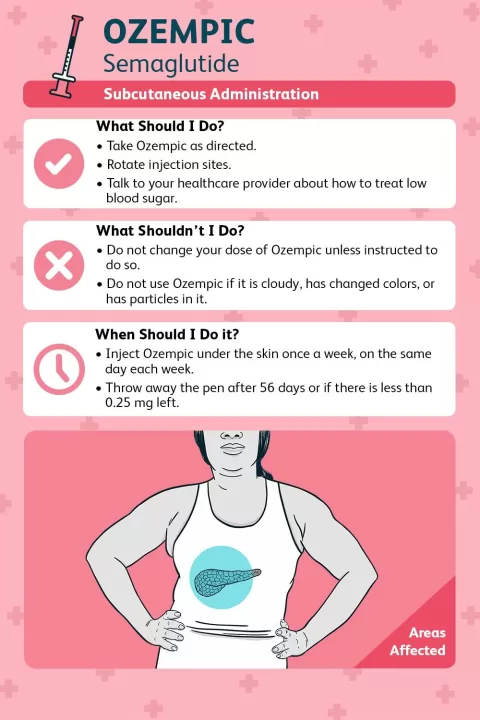Women’s health care has evolved significantly to address the unique needs of females throughout their life stages, particularly focusing on reproductive health. Central to this discourse are critical elements like birth control pills and hormonal contraceptives, which not only assist in family planning but also affect overall mental health and well-being. As research advances, it highlights the intricate relationship between hormones and cognitive functions, shedding light on how these methods can impact emotional health. The need for comprehensive women’s health research has never been more vital, as it empowers women to make informed decisions about their health and lifestyle choices. By understanding these dynamics, we can pave the way for better healthcare solutions tailored to women’s distinct health requirements.
The field of female health services encompasses a wide array of topics, from reproductive well-being to psychological support. Terms like contraception and hormonal treatments are commonly encountered, yet they merely scratch the surface of women’s health care complexities. Nowadays, increasing focus is being placed on how interventions within this sector, such as hormonal therapies, influence not just fertility but also mental and emotional states. The importance of in-depth studies in this realm is becoming clear, as we strive to empower women with the knowledge they need regarding their health options and the potential implications of their choices. As we move forward, bridging the gap in understanding will be crucial for optimal care and health literacy for women everywhere.
The Impact of Birth Control Pills on Women’s Mental Health
The influence of birth control pills extends beyond reproductive health, particularly when it comes to women’s mental health. Hormonal contraceptives, which include birth control pills, can interact with brain chemistry and affect emotional regulation. Studies indicate that estrogen and progesterone play vital roles not just in reproductive functions, but also in regulating mood and cognition. The synthetic hormones found in these contraceptives can result in neurochemical changes that may contribute to mood swings, increased anxiety, and even depression in some women, particularly if these hormones are taken during adolescence when the brain is still developing.
Moreover, research suggests that the hormonal fluctuations associated with birth control can lead to a blunted stress response. For women on the pill, the lack of the normal cortisol spike during stressful situations may diminish their ability to cope with stress effectively. As a result, these women report experiencing high levels of stress, even when physiological indicators suggest otherwise. Understanding the connection between birth control pills and mental health is critical, as it helps to empower women to make informed choices about their contraceptive options and mental well-being.
Women’s Health Care: Addressing Hormonal Contraceptives and Reproductive Health
In the realm of women’s health care, there is an urgent need to address the complexities surrounding hormonal contraceptives and their broader implications on reproductive health. While birth control pills provide significant advantages, such as preventing unintended pregnancies and offering menstrual regulation, concerns about their psychological effects warrant careful consideration. Researchers are now pushing for more substantial studies to investigate how these synthetic hormones influence not only physiological health but also mental health across different stages of life, particularly as they relate to reproductive health.
Women’s health research is increasingly highlighting variability in responses to hormonal contraceptives. Factors such as age, medical history, and even genetics may influence how the body reacts to these medications. There’s a growing call within the healthcare community to tailor contraceptive options to individual women’s needs, incorporating comprehensive counseling about possible side effects, including impacts on mood and cognition. By fostering an environment where these conversations can take place, health care providers can support women in making choices aligned with their lifestyle and health priorities.
Cognitive Effects of Hormonal Contraceptives
Emerging research has begun to unravel the cognitive effects associated with hormonal contraceptive use. Specifically, studies suggest that taking birth control pills may influence cognitive functions related to spatial reasoning and memory. Although the effects are often subtle, they highlight the need for understanding how hormonal fluctuations caused by synthetic contraceptives can impact women’s cognitive abilities. For instance, some studies have shown that women taking certain birth control pills may perform differently on tasks that require spatial awareness compared to naturally cycling women.
These cognitive alterations can have broader implications, especially for young women in educational settings or those engaged in professions requiring high cognitive demands. By exploring the mechanism behind these changes, researchers can provide more nuanced recommendations regarding which contraceptives might be best suited for different women, taking into account their cognitive health and lifestyle needs. This knowledge empowers women to make informed decisions about both their reproductive health and their mental capabilities.
The Role of Hormonal Contraceptives in Reproductive Freedom
Hormonal contraceptives have been pivotal in advancing reproductive freedom for women, giving them unprecedented control over their bodies and choices regarding family planning. The ability to choose when and if to have children has far-reaching social and economic implications, contributing to greater participation of women in education and the workforce. However, the ongoing discourse around reproductive rights highlights the importance of maintaining access to reliable contraception amidst changing political landscapes.
As access to reproductive health care faces potential threats in various contexts, it is critical to ensure that women remain informed about the benefits and risks of hormonal contraceptives. Reports of misinformation surrounding these contraceptives can undermine women’s autonomy over their reproductive decisions. Hence, health care providers, educators, and advocates must engage in transparent discussions regarding hormonal contraceptives, ensuring that women understand their choices fully and can exercise their reproductive rights without misinformation interfering in their decision-making.
Exploring Variability in Contraceptive Responses
The variability in physiological and psychological responses to hormonal contraceptives is a critical focus in women’s health research. Not all women respond to hormonal birth control in the same way, and this variability can be influenced by a myriad of factors including genetic predisposition, pre-existing mental health conditions, and even lifestyle choices. As research progresses, understanding individual differences can lead to more personalized approaches in prescribing contraceptives, enhancing both effectiveness and side effect management.
Moreover, acknowledging the variability is essential in clinical settings. Healthcare providers must consider these differences when discussing contraceptive options with their patients. By integrating findings from ongoing research into clinical practice, providers can cultivate a more empathetic and informed approach, fostering healthier contraceptive use among women. This paradigm shift emphasizes the importance of considering not only the physical effects of contraceptives but also their psychological dimensions, thereby supporting holistic women’s health care.
Contraceptive Decision-Making and Knowledge Empowerment
Empowering women in contraceptive decision-making is crucial for improving reproductive health outcomes. Many women express a lack of knowledge when it comes to understanding the full scope of hormonal contraceptive options available to them. This gap in knowledge contributes to suboptimal choices and increased anxiety regarding potential side effects. It is essential that education on birth control options includes comprehensive information about how hormonal contraceptives can influence not only reproductive health but also mental health and overall well-being.
Digital decision tools and patient education resources increasingly emerge as effective methods for enhancing women’s understanding of their options. Studies have shown that women who utilize these tools feel more confident in managing their reproductive health and are better equipped to discuss their needs and preferences with healthcare providers. By prioritizing contraceptive education and fostering open discussions, health professionals can help women navigate their choices, ultimately leading to better informed and healthier decisions around contraception.
Understanding Hormonal Influences on Stress Responses
The relationship between hormonal contraceptives and stress response is an important area of research that highlights the complex interplay between hormones and emotional health. Evidence suggests that women who take hormonal birth control may experience differences in how they respond to stress. For example, the typical cortisol response to stress—characterized by an initial spike followed by a gradual decline—can be blunted in women using birth control pills. This altered physiological response can have significant implications for coping with daily stressors and may influence overall mental well-being.
Researchers are currently investigating the biological mechanisms behind these altered stress responses. Understanding how hormonal contraceptives can modify inflammatory markers linked to stress and mood will be invaluable in providing tailored health care for women. These insights could not only improve mental health outcomes for women on contraceptives but also enhance their overall quality of life by addressing the psychological impacts of hormonal birth control.
The Importance of Research in Women’s Health Care
Robust women’s health research is vital for enhancing understanding of the implications of hormonal contraceptive use. Historically, the research in this field has lagged behind other health areas due to lack of funding and focus on women’s health issues. However, recent initiatives aim to rectify this by prioritizing research that explores the multifaceted effects of hormonal contraceptives on both reproductive and mental health. By fostering an environment that encourages this research, we can ensure that women’s health care continues to evolve based on solid evidence.
As the body of research grows, it becomes increasingly important for healthcare providers to stay abreast of the latest findings. This knowledge is essential for effectively communicating the potential side effects and benefits of various birth control methods, allowing women to make informed decisions. Furthermore, by addressing gaps in knowledge and understanding the nuances of hormonal contraceptives, we can significantly improve the overall health and well-being of women globally.
Addressing Misinformation About Hormonal Contraceptives
In an era where misinformation about hormonal contraceptives can rapidly spread through social media, it is more critical than ever to ensure accurate information is available to women. Many misleading narratives persist about the safety and efficacy of hormonal birth control, which can deter women from utilizing effective contraceptive methods. Educating women on the empirical science behind hormonal contraceptives not only empowers them but also equips them to navigate conversations with healthcare providers more effectively.
Combating misinformation also involves acknowledging women’s voices in the discourse surrounding hormonal contraceptives. Women’s health advocates must work alongside researchers and healthcare professionals to create campaigns that elevate accurate information and shared personal experiences. This multifaceted approach can counteract the narrative that often diminishes the importance of women’s health issues, ultimately fostering a better dialogue about the benefits and risks of contraceptive options.
Frequently Asked Questions
What impact do hormonal contraceptives have on women’s mental health?
Research indicates that hormonal contraceptives, particularly birth control pills, can influence women’s mental health, potentially increasing the risk of depression and anxiety. Studies reveal that women using these contraceptives may experience changes in mood and emotional regulation due to the hormonal fluctuations they introduce, which can affect stress responses and overall cognitive function.
How do birth control pills affect reproductive health decisions?
Birth control pills play a significant role in reproductive health by providing women with the ability to control fertility and make informed decisions about family planning. Understanding the effects of hormonal contraceptives can empower women to choose options that align with their health goals while considering the mental and physical side effects associated with their use.
Are there any side effects of hormonal contraceptives that women should be aware of?
Yes, hormonal contraceptives can have several side effects, including mood changes, variations in libido, and alterations in stress response. Some women may experience heightened risks for depression, especially if they have pre-existing mental health conditions. It’s essential for women to discuss these potential effects with their healthcare providers when considering birth control options.
What types of reproductive health research are important for women considering hormonal contraception?
Research focusing on the long-term effects of hormonal contraceptives on brain function, emotional health, and stress response is crucial. Studies that investigate the variability in individual responses to different birth control formulations can provide insightful data, enabling women to make more informed choices regarding their reproductive health.
How should women choose between different types of hormonal contraceptives?
Women should engage in open conversations with their healthcare providers to discuss various hormonal contraceptive options. Factors such as personal medical history, potential side effects, and lifestyle considerations should be taken into account. Utilizing contraceptive decision aids can also help women navigate their choices effectively.
What are the benefits of discussing mental health effects of birth control pills with a healthcare provider?
Discussing mental health effects with a healthcare provider helps ensure that women are informed about potential psychological side effects of hormonal contraceptives. This dialogue can lead to personalized care, better understanding of individual health needs, and finding the most suitable form of birth control that minimizes negative impacts on mental well-being.
| Key Points | |
|---|---|
| **Hormonal Contraceptives** | Impact on the Brain and Body |
| Historically Misunderstood | Hormonal contraceptives were developed without a full understanding of hormones’ roles. |
| Changes in Health and Cognition | Research shows they affect stress responses, cognition, libido, and mood. |
| Risk of Depression | Use during adolescence is linked to a higher risk of major depressive disorder later. |
| Informed Decisions | The need for further research helps women make educated reproductive health choices. |
| Variability in Response | Variables like age and mental health history influence reactions to hormonal contraceptives. |
Summary
Women’s health care involves understanding the intricate relationship between hormonal contraceptives and overall health. New research emphasizes the necessity of informed choice regarding reproductive health, as hormonal birth control can influence various aspects of wellbeing, including cognitive function and mental health. As we advance our knowledge, ensuring access to reliable information will empower women to navigate their health care options wisely.
The content provided on this blog (e.g., symptom descriptions, health tips, or general advice) is for informational purposes only and is not a substitute for professional medical advice, diagnosis, or treatment. Always seek the guidance of your physician or other qualified healthcare provider with any questions you may have regarding a medical condition. Never disregard professional medical advice or delay seeking it because of something you have read on this website. If you believe you may have a medical emergency, call your doctor or emergency services immediately. Reliance on any information provided by this blog is solely at your own risk.







